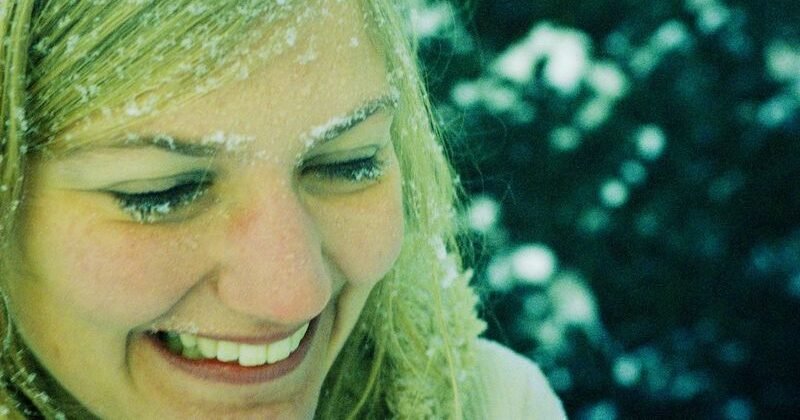Loose Cattle Have a Wonderful Life

On "Seasonal Affective Disorder," Michael Cerveris and Kimberly Kaye try to deal with the dark and light sides of the holiday season.
The number of suicides don’t go up during the Christmas season. A CDC study shows that suicide attempts are actually at a yearly low in December, but the urban legend makes sense. Shorter, darker days added to Christmas’ ability to push people’s buttons can weigh heavily, particularly when balanced by gaiety of Christmas trappings. Christmas lore is built on a foundation of absence and loss, and its first and biggest hit, “White Christmas,” became a hit in 1942 during World War II, when many GIs and their families could only dream of a white Christmas together. “I’ll Be Home for Christmas” (“if only in my dreams”) was a conscious attempt to strike while the iron was sad a year later, and the lyrics to “Have Yourself a Merry Little Christmas” were rewritten because the ones Judy Garland sang in 1944’s Meet Me in St. Louis were too bleak. It’s a Wonderful Life is only wonderful after George Bailey’s life bottoms out.
Americana band Loose Cattle titled their Christmas album Seasonal Affective Disorder in that spirit, and their holiday covers don’t twinkle with hope and good cheer. Instead, there’s a woozy, tentative warmth in Tom Waits’ “Christmas Card from a Hooker in Minneapolis” and Merle Haggard’s “If We Make it Through December,” and a hard-scrabble, make-do attitude in BR5-49’s “Truckstop Christmas.” When Michael Cerveris and Kimberly Kaye harmonize on the songs, their connection fills the emotional blanks left in the lyrics.
“A Very Loose Cattle Christmas” brings their music to the Chickie Wah Wah stage Tuesday night with a long list of musical guests that includes Tom McDermott, John Boutté, The Iguanas’ Rod Hodges, Bonerama’s Craig Klein, Lost Bayou Ramblers’ Andre and Louis Michot, and many more. Although Cerveris and Kaye come from New York’s theater community—she was a writer, he is a Tony Award-winning actor who this year appeared on television in Gotham and The Tick—they’ve both made homes in New Orleans and the show celebrates that.
“Kim described [the album] really accurately as the musical equivalent of getting your friends and family together for the holidays in all the complexity and joy and difficulties that entails,” Cerveris says.
Cerveris and Kaye’s relationship began as a professional one that turned romantic, then musical, then friendly after they split. The kind of unflinching honesty that makes those relationship changes possible is a part of their music. Americana was a musical neutral ground for them, not exactly in either’s wheelhouse, but it’s a space that embraces their musical values. “When we looked for a way to make music together, this seemed like a place where you get great songwriting, great storytelling and great characters—the combination often of clear-eyed, borderline cynical eye on the world or the time of year combined with heart-on-your-sleeve,” Cerveris says.
Their shared affection for the musical and emotional rough and tumble of Johnny Cash’s duets with June Carter Cash gave Loose Cattle its aesthetic, but Kaye’s health specifically shaped Seasonal Affective Disorder. She spent much of 2016 in a hospital in Cleveland dealing with a rare disease that left her battling a host of illnesses including Crohn’s Disease, shingles and a kidney infection. “When you’re surrounded by the frozen Rust Belt of Cleveland, Ohio and it’s cold and you’re sick, that definitely influences what kind of stories you’re in a place to tell,” Kaye says.
When Cerveris asked her to consider the Tom Waits song, he asked if she thought it was really a Christmas song. It opens, “Hey Charlie I'm pregnant and living on 9th Street / Right above a dirty bookstore off Euclid Avenue,” and from her hospital room window, Kaye looked down on a Euclid Avenue. She didn’t see any dirty bookstores, but she knew what snow and slush looked like in a Rust Belt city under the gun metal gray December sky. After that, she says, “I don’t know if it’s anybody else’s Christmas song, but it’s my Christmas song.”
Because Kaye was ill and had less affection for Christmas music than he did, Cerveris did much of the legwork to find songs for the album. Along the way, he found Christmas Gumbo, the 2004 compilation of Christmas music by New Orleanians and other musicians from the region. They move the Sonny Landreth and The Dixie Cups’ “Got to Get You Under My Tree” away from Landreth’s signature guitar sound by adding R&B horns that punctuate lines, and they deemphasize the piano and add some push to Allen Toussaint and Irene Sage’s “The Day it Snowed on Christmas.”
“There’s no point in covering a song if you’re just going to try to insufficiently imitate the people who did it in the first place,” Cerveris says. “You hear songs like that all the time that basically sound like the band really wishes they were that person. We put some time and energy in thinking about, What’s our version of the song? and tried to be faithful to the spirit and intention of it, but also we add something to it.”
That’s clear on Loose Cattle’s version of Joni Mitchell’s “River,” a song Kaye wanted to sing from the start. When Mitchell recorded the song, she sang about wanting to “leave this crazy scene,” but you knew she wouldn’t. When Kaye sings it, the outcome is less certain. Bennett Sullivan’s banjo gives the song fragility to the song, and Tom McDermott’s piano circles the thoughts in a way that Mitchell’s doesn’t. Similarly, it’s not clear if Alex Chilton is standing naked or taking the piss when he sings “Jesus Christ” on the complicated Third. When Loose Cattle replace the electric guitars with acoustic instruments, return the song to Appalachia, and adopt a less mannered vocal tone, the belief expressed in the lyrics is clear.
The desire to do Christmas music their way really proved to be a challenge when Cerveris and Kaye tried to write a Christmas song. “It seemed like a great idea until we sat down and tried to do it,” he says. “It calls into question so much more than writing a song for your next record.” He thought about Christmas songs—what made them work, and what made them memorable. The most important thing, he decided, was simplicity. “The classic songs, they’re most often describing in very everyday ways things that find the universal in the specific,” Cerveris says.
That’s what Cerveris and Kaye went for on “Shepherds in the Parking Lot” as Cerveris fired off verses that Kaye sorted through for lines that could lead to a real song. The emphasis on the simple and quotidian guided the process, even as the song began to respond to the 2016 they were going through. When they sing, “The doctors gave you pills / and now you’re numb but you’re still sick,” the lines telescope out to address Kaye’s experience and those of countless others dealing with health care in America. “The song began as a much more wide-ranging, political-is rant,” he says. “It got whittled away to the human faces of all of that in our lives specifically, but also in the lives of our friends and people we know.” They hope that they captured some of what Robert Earl Keen got in “Merry Christmas from the Family,” which also appears on Seasonal Affective Disorder. According to Cerveris, “He with great sense of humor manages to say some really complex things about issues of racism, family, alcoholism and everything else in a way that you can smile at and go This is my family even if the particulars aren’t the same.”
Those basic human connections are at the heart of the Christmas celebration and Seasonal Affective Disorder, and they’re baked into the album’s origins. Kaye started to go into organ failure during the Christmas season last year, and she needed to flown from New Orleans to Cleveland for expensive treatment she couldn’t afford. When Cerveris started a GoFundMe page to help with her medical bills, people around the world chipped in. She had to deal with the irony that the one who was down on Christmas was now a hospital-gowned George Bailey, but that help came with an unexpected component. Many of those who donated found Kaye’s email address and Facebook and Instagram pages and wrote her. They felt connected to her through their donation and wanted to see how she was doing, but they wanted more.
“As this Christmas miracle was happening, all these strangers started telling me in their emails and messages how much they were going through that holiday also, and why it was important for them to reach out and help this girl they didn’t know,” she says. Kaye was too sick to read, much less deal with the messages at the time, but when she read them in the spring, “it really left a mark about how difficult this time of year can be for people: I’m making a donation to a good cause. I’m wrapping a present. I’m keeping a smile on my face. It’s 2 a.m. and I’m writing a stranger who I just $50 to my life story because if I don’t tell somebody how hard this is, I’m going to explode.”
“We wanted to make a record for those people as well as those who just love Christmas,” Cerveris says.






